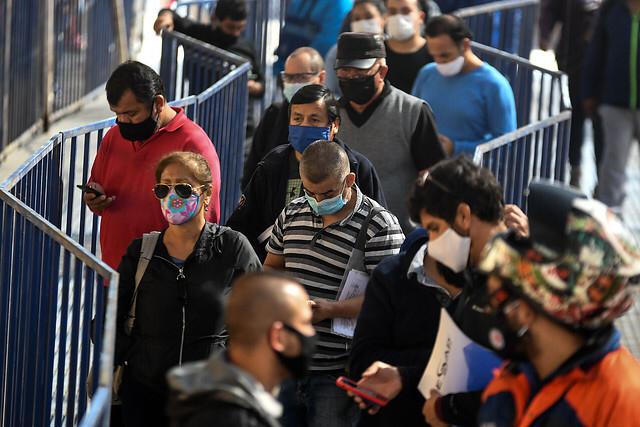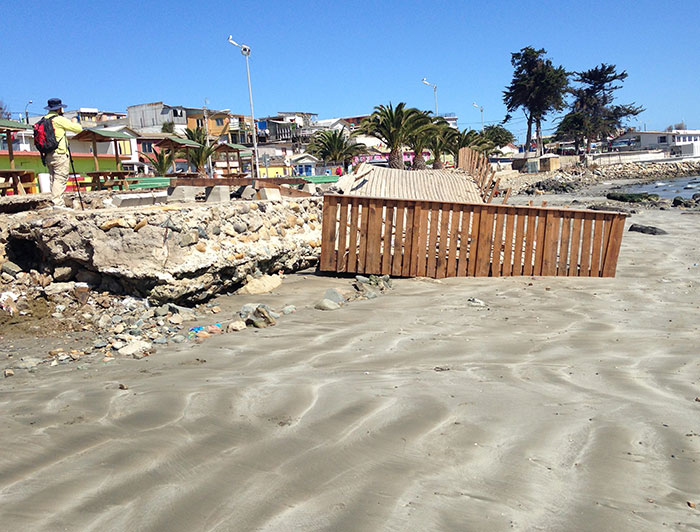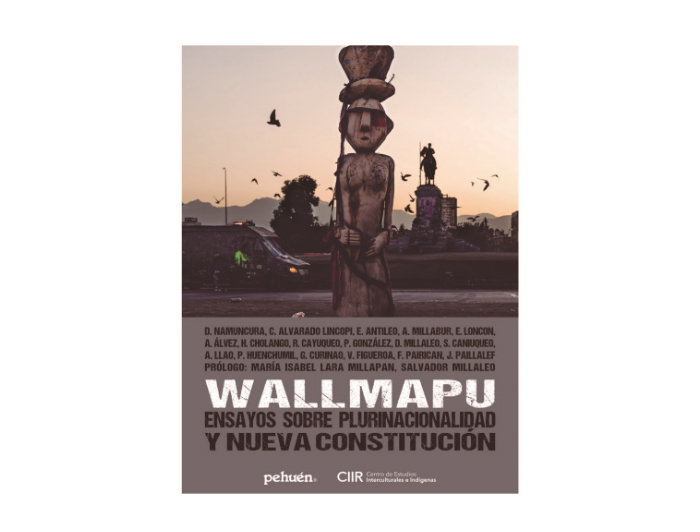Prevention of chronic diseases, a National Tsunami Warning System and risk maps, the Urban Wetlands Law, the incorporation of Indigenous Peoples and Afro-descendants in the constitutional discussion, and improving our national coexistence, are some of the fruits and challenges from the Research Centers in Priority Areas (Fondap), under the wing of the UC.

UC houses five Fondap centers, in areas as relevant as chronic diseases, disaster management, sustainable urban development, intercultural and indigenous studies, and conflict and social cohesion. (Photo: COES)
Rarely has the key role of science been so emphasized as in this Covid-19 pandemic. Not only because of the development of vaccines, tests and other devices, but because it became clear that having scientific evidence, indicators and reliable information in the shortest possible time, are essential for making public decisions, such as the application quarantines or what to do to deal with the mental health of the population, among many other issues.
Here, research plays a fundamental role, where the relationship between universities and the State becomes extremely virtuous. One of the clearest examples is the Research Centers in Priority Areas (Fondap). The first of these centers was born in 1997 and its objective is to articulate the activity of groups of researchers with demonstrated productivity, in areas of knowledge of importance for the country and where the national basic science has reached a high level of development.
They promote research of excellence; promote partnerships between different universities, national and international collaboration networks; seek to train advanced human capital, and disseminate research results to the scientific community and society. UC houses five Fondap centers, in areas as relevant as chronic diseases, disaster management, sustainable urban development, intercultural and indigenous studies, and conflict and social cohesion.
As stated by UC Vice-President for Research Affairs, Pedro Bouchon: “These centers play a decisive role, because they generate first-line research on topics of high relevance to the development of the country, as national and international evaluators have consistently underlined. Oriented research is one of the aspects that distinguishes the success of countries in R&D&i+e, as highlighted in the comparative experience, with results that are put at the service of public policies, having a concrete role in the improvement of people’s quality of life”.
Chronic diseases: the other “pandemics”
Covid-19 has been, without a doubt, the greatest concern of our health both globally and nationally. In Chile alone, 22,264 people have died from it (Minsal, January 1, 2021). However, there are other more silent “pandemics”. The main cause of death in our country is cardiovascular diseases – representing about a third of all deaths. Cancer follows, with about 25,000 deaths each year.
Preventing and investigating risk factors for chronic diseases in Chile is the goal of the Advanced Center for Chronic Diseases (ACCDiS). As its director, Sergio Lavandero, academic of Chemical and Pharmaceutical Sciences, and Medicine at Universidad de Chile, and from the Division of Cardiology of the University of Texas Southwestern Medical Center (USA) explains, the center “has a scientific team working in six lines of research: metabolic signaling in heart failure, biomarkers and gender differences in heart failure, tumor cell biology and inflammation, epigenomic scenarios in gastric cancer, natural history of digestive cancer, and nanomedicine for the diagnosis and cancer therapy”.
Determined to have a greater impact on Chilean society, especially in the education and intellectual development of children, at the beginning of 2019, ACCDIS in conjunction with the Faculty of Chemical and Pharmaceutical Sciences of Universidad de Chile, were awarded the Program Regional Associative Explore North Metropolitan Region. It is in charge of the dissemination and scientific development in 17 communes of the Metropolitan Region; in its two years of execution, more than 50 events have been held for students, teachers and the community in general, positively impacting more than 45,000 inhabitants of Santiago.
Another important contribution is the MAUCO Project. A long-term population study that began in 2014 and that follows 10,000 adults between 38 and 74 years old, for at least 10 years, who are re-interviewed a few times over certain period. The study focuses on Molina, in the Maule region, one of the areas with the highest rates of cardiovascular diseases, stomach and gallbladder cancer in the country. The study seeks to determine the risk factors associated with obesity and chronic diseases.
The research, led by UC Medicine academic and ACCDiS deputy director, Catterina Ferreccio -also member of the Covid-19 Advisory Council of the Ministry of Health- seeks to become a reference model in adult health, both in Chile and in other countries, impacting on public policies that manage to modify people’s habits, positively impacting their health.
Predicting and reducing disaster risks

As the director of Cigiden, Rodrigo Cienfuegos, explains, in this center the scientific results are put at the center of public discussions and the research work is continuously fed back from the dialogues with the different local people. (Photo: CIGIDEN)
In one of the most seismic countries in the world, reducing disaster risk is a key challenge. This is precisely the objective of the Research Center for Integrated Disaster Risk Management (CIGIDEN), which seeks to overcome the structural gaps the country has, given the geological nature of its territory, climate variability and risk governance.
One of its important achievements has been to contribute to the implementation of a National Tsunami Warning System, through Fondef projects and international collaboration. It currently operates in the Hydrographic and Oceanographic Service of the Chilean Navy (SHOA, for its Spanish acronym). It collects the most important scientific advances in the study of earthquakes and tsunamis.
The first projects focused on a system that would allow, quickly and precisely, to determine which areas of the country could be affected by a tsunami, as a result of an earthquake. According to the CIGIDEN researcher and academic from the Universidad Federico Santa María, Patricio Catalán, to achieve this a method known as the “database of pre-calculated scenarios” was adapted. “Hundreds of possible events were incorporated, in such a way that when a tsunami occurs, you can search that database for the one most similar to the real one. In this way, time is not invested in making calculations, but simply in evaluating and informing the population”, he explains. This same academic leads a Fondef project that allows modeling the tsunami risk in times close to the real one.
As stated byCIGIDEN director and UC Engineering academic, Rodrigo Cienfuegos: “The effort to connect scientific work with country problems and the requirements of different political and social actors, led CIGIDEN to innovate in new models of knowledge exchange. In these, the scientific results are put at the center of public discussions and the research work is continuously fed back from the dialogues that are facilitated in the different territories with local governments, Non-Governmental Organizations (NGOs), communities, and legislators”.
An example of this new paradigm is the Observatorio de la Costa, in which the UC academic Carolina Martínez Institute of Geography participates. As Cienfuegos tells us, “scientific evidence has made it possible to emphasize the need to modernize the regulations that govern the territorial and urban planning of coastal areas, incorporating principles of disaster risk reduction, sustainable development, adaptation to climate change, and human well-being. Through participatory processes and socio-political dialogues, the initiative is managing to position the importance of advancing on this path”.
Cities to live better
In Chile, 90% of the population lives in cities. Hence, the Center for Sustainable Urban Development (CEDEUS) was born in 2013 with the aim of understanding urban dynamics, the instruments and decision-making processes to improve people’s quality of life. This requires an interdisciplinary perspective, which is transversal in the work of the center, as well as the interaction with civil society and the public world.
Among the efforts of CEDEUS to contribute to public policy, one of its outcomes stands out as the Urban Wetlands Law, promulgated in January 2020: “The first law that places emphasis on protecting and conserving them, and that changes the focus of the Environmental Bases Law, focusing on the ecosystem and not on the type of investment project”, says Carolina Rojas, a researcher at the center and professor at the UC Institute for Urban and Territorial Studies, whose work was very important for the development of this law.
Along the way of linking science to political decision-making spaces, the work of twelve CEDEUS researchers stands out as part of the Cities Roundtable of the COP25 National Scientific Committee, which prepared the text “Scientific evidence and climate change in Chile: summary for policy decision makers”. Juan Carlos Muñoz, CEDEUS director and the one who led the Cities Roundtable, is now part of the Scientific Advisory Committee of the Ministry of Science, Technology, Knowledge and Innovation.
It is very important that there is a permanent instance where researchers from different institutions and disciplines converge. There is a lot of work that was done in the framework of the COP25 National Scientific Committee. We learned to work in a network and it is good to collect and cast this experience, so that public policies consider an increasingly inescapable complex reality, and extend the necessary transformations that we must undertake to face climate change”.
Native peoples in the constitutional discussion

The CIIR book “Wallmapu: Essays on Plurinationality and the New Constitution”, brings together the contribution of Mapuche artists, academics and traditional leaders, exceeding 40 thousand downloads. (Photo: CIIR)
Contributing to public policies on interculturality, in an increasingly diverse society, is the challenge of the Center for Intercultural and Indigenous Studies (CIIR), through a dialogue strategy and a collaborative methodology.
“During 2020, CIIR’s activities focused with special emphasis on the constituent process, which began on November 15, 2019 with the Peace Agreement. From that moment on, various activities began to be designed in order to influence the public debate on the need to include Indigenous Peoples and Afro-descendants in the discussion of a new constitutional text”, explains the director of CIIR and academic of the UC School of Anthropology, Pedro Mege.
A milestone was the “Study of public opinion: Indigenous peoples and the new Constitution“. Despite the fact that the advent of the pandemic forced the date of the constitutional plebiscite to be rescheduled, initially set for April 26th, the results of this first measurement were nonetheless presented during that month. These data, added to those of the Longitudinal Study of Intercultural Relations presented in 2019, strengthened the constitutional discussion regarding Indigenous Peoples, through media interviews with different CIIR researchers.
In October, the second measurement of the Study was published. The data were presented by the UC President Ignacio Sánchez, Universidad Diego Portales President Carlos Peña, and Álvaro Ramis, President of Universidad Academia de Humanismo Cristiano. To these studies is added the book “Wallmapu: Essays on Plurinationality and the New Constitution“, a text that brings together the contribution of Mapuche artists, academics and traditional leaders, exceeding 40 thousand downloads.
In August, the debate on the method of incorporation of Indigenous Peoples and Afro-descendants in the constitutional discussion was resumed in the National Congress. In this context, three researchers from the center participated in the hearings arranged by the Senate Constitution Commission.
Likewise, as a way to support the process of raising indigenous candidates, the CIIR organized -on January 28 and 29, 2021- a Constituent School for indigenous candidates, to address issues such as campaign building, organization of power and collective rights.
For a better national coexistence
The social outbreak of October 2019 emphasized, among other things, the need for dialogue and to resolve conflicts together as a society. This is precisely what the Center for Conflict and Social Cohesion Studies (COES) is dedicated to, which aims to identify and analyze the factors that generate and impact social conflict, and those that strengthen cohesion in Chile.
For this, it develops data collection and survey instruments, with high quality standards, which are available in a public repository with free access. It contains databases that account for a decade of conflict in Chile, among others; in addition to a dossier that includes publications, books and press material organized in 18 topics.
A relevant study is the Longitudinal Social Study of Chile (ELSOC), a panel study that shows social change in a series of attitudes and perceptions of the population. Their data contributed with evidence on issues such as urban cohesion, neighborhood, migration, among others, to deliver recommendations for public policies that were included in the final Report of the Advisory Council for Social Cohesion (2020), a body convened by the Ministry of Development Social and Family.
As stated by María Luisa Méndez, director of COES and academic at the UC Institute for Urban and Territorial Studies. “Research in the social sciences, and in particular the ELSOC instrument, are essential to provide empirical evidence, which has been collected with the highest standards of academic excellence. The latest political processes, and the socio-sanitary crisis in the country and the world, show the role that the social sciences must play in actively participating in the discussion in the public space, generating systematic, critical and reflective knowledge. It allows to highlight problems that many times they are made invisible by different types of interests, people and institutions”.
Likewise, in 2020 COES conducted a series of initiatives through its different instruments to promote reflection and dialogue based on evidence. Among them: The Conflict Observatory delivered a report that analyzes ten years of contentious actions in Chile, as well as a special one on the social outbreak; the Observatory of Labor Strikes delivered a special on strike activity in 2019 and the effects of “18-O”; and the Social Cohesion Observatory was launched with an interactive web platform.